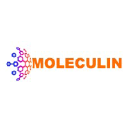Companies
Discover all trending biotech companies
Discover all trending biotech companies

Company Research Platform
Global Employees
10
R&D Investment
17700000
Patents Filed
2
This segment focuses on the development of novel therapies for the treatment of highly resistant tumors. Key activities include preclinical research, clinical trials, and regulatory affairs related to oncology drug candidates. The lead drug candidate, Annamycin, is currently in Phase 3 clinical trials for relapsed or refractory acute myeloid leukemia (AML) and cancers metastasized to the lungs. Research efforts are directed towards understanding the mechanisms of drug resistance and identifying new targets for therapeutic intervention. Technologies employed include molecular biology, cell-based assays, and in vivo models. The goal is to improve patient outcomes by providing effective treatments for cancers that are resistant to conventional therapies. Future opportunities include expanding the indications for Annamycin and developing new combination therapies. Partnerships with institutions like MD Anderson support the development and clinical evaluation of these therapies.
This segment is dedicated to the development of immune/transcription modulators for the treatment of various cancers and hematologic malignancies. The flagship compound, WP1066, is in Phase I clinical trial for brain tumors, pediatric brain tumors, pancreatic cancer, and hematologic malignancies. Research and development activities involve the design and synthesis of novel analogs of WP1066, such as WP1220 and WP1732, with improved efficacy and safety profiles. These compounds target key signaling pathways involved in tumor growth and immune evasion. Technologies used include medicinal chemistry, molecular modeling, and immunological assays. The aim is to develop targeted therapies that can modulate the immune response and inhibit tumor growth. Future opportunities include exploring the potential of these compounds in combination with other immunotherapies and targeted agents. Collaborations with DERMIN Sp. z o. o. and WPD Pharmaceuticals Sp z.o.o. facilitate the clinical development and commercialization of these modulators.
This segment focuses on the development of metabolism/glycosylation inhibitors for the treatment of cancers and viruses. The lead compound, WP1122, targets glycolysis and glycosylation pathways that are essential for tumor cell survival and viral replication. Research and development efforts involve the identification and validation of new targets within these metabolic pathways. Technologies employed include metabolic flux analysis, enzyme kinetics, and cell-based assays. The goal is to develop selective inhibitors that can disrupt tumor metabolism and viral replication without causing significant toxicity to normal cells. Future opportunities include exploring the potential of WP1122 in combination with other anticancer and antiviral agents. Preclinical development of other drug candidates targeting glycolysis and glycosylation is also underway.